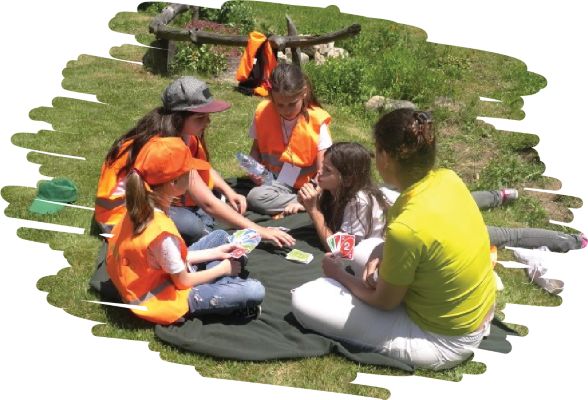Social skills – development from early childhood
How and why it is useful for children
How more social children grow up
Sociality in Lucky Kids
In today’s world a child who survives without developed social skills can easily lose himself, be left without friends or be locked in the joyless world of electronic machines. It is important to know that socialization is a key moment in a child’s growth, his “walking and contact” in the outside world.
It’s like walking – we can’t do without it and no one can stop its development. We need to be skilled navigators and help the little person to define himself and find his belonging in the world.
The word “social skills” can be reduced to the explanation – life skills. They are also called interpersonal, interpersonal or “soft skills”.
What do they include – skill for:
- effective communication;
- conflict resolution without violence;
- active listening;
- empathy;
The ability to communicate effectively: it gives the child a way to express themselves and share thoughts, ideas, parts of a whole. This is a skill that also distinguishes good leaders.
The ability to resolve conflicts without violence, is very important. Dissatisfaction and misunderstanding can arise in any situation. This skill allows to clarify the causes of the conflict and to find a solution that is good for all participants. It includes other skills such as the ability to actively listen with understanding, speaking and sharing. People with this skill become valuable friends and colleagues.
The ability to actively listen means to be able to hear and understand what the child or adult is telling us. People who are good listeners are sought after for company and friendship. They are like a breath of fresh air in a busy everyday life.
The skill of empathy is one of the longest-formed skills that is cultivated throughout life. Its essence is to put ourselves in the other person’s shoes, to understand his feelings, worries and joys. Children who build empathy from an early age, in their adult life create lasting relationships and become desirable partners.
Respect – this skill or rather virtue has many faces: to listen to the interlocutor without interruption, to ask questions and take an interest in the person against us, to be punctual for meetings, to make way for the elderly, to talk with a respectful tone and to comply with other adults and children.
The respect shown to other people always comes back to us many times.
The development of social skills – part of child development
Every mother who cares for a baby knows that she smiles or waves when she sees her, when she meets other children. These are probably the first earliest forms of socialization. The baby makes his attempts to communicate. He wants to show friendliness, joy, pleasant feeling when meeting people like him – children, adults. This benevolent feeling is inherent in human nature!
Then there is the speaking and the first words – the same baby can now send a verbal message. Sometimes these words are not clearly spoken, but the goal is one – to communicate.
Speech is embedded in the earliest forms of communication, after body language. Through language begins true socialization and the construction of the first and one of the most important skills: the ability to communicate as a prerequisite for socialization.
If we follow the phases in the language development of the little man, the same stages in the development of his social skills appear.
How children grow up with greater social adaptability
Here the main factor is education. Of great importance is the home environment, communication with loved ones – mother and father, sisters and brothers, as well as communication with peers, adults from the immediate environment.
Children who grow up in large families with many friends are more open and more adaptable to communicating with strangers. They easily start a conversation, make friends and find information that depends on other people.
Of course there are also children – introverts, who prefer to stay quiet, read or be alone. We cannot say that they are a-social, on the contrary. They feel and think about others to a much greater extent than they show. They have a well-developed empathy skill.
In both cases we have developed to a greater extent one of the skills for socialization.
An interesting fact is that we cannot expect the ideal option with well-developed all kinds of socialization skills. There is always one of them that is better expressed than the others.
Sociality in LuckyKids
The daily routine in LuckyKids there are almost no moments when children are left alone, without company, be it friends, adults: teachers or animators.
The daily routine is designed to be conducted together. This is our way of teaching “social skills” to children. Demonstrating, practicing and improving them requires an environment that is structured like that in our camp.
Starting the day with a simple routine task like brushing your teeth now requires the practice of respect – the child needs to respect the right to use the toilet by other children. Giving order and waiting are some of the first life skills we learn.
Breakfast and time together follow. The stage where we practice skills such as communication, respect and patience.
LuckyKids is an amazing school for socialization, communication, empathy and vassal support. Here we are friends, colleagues, teammates. Everyone is part of the team, everyone supports the others and participates equally. In this way we have no losers, everyone is a winner!

